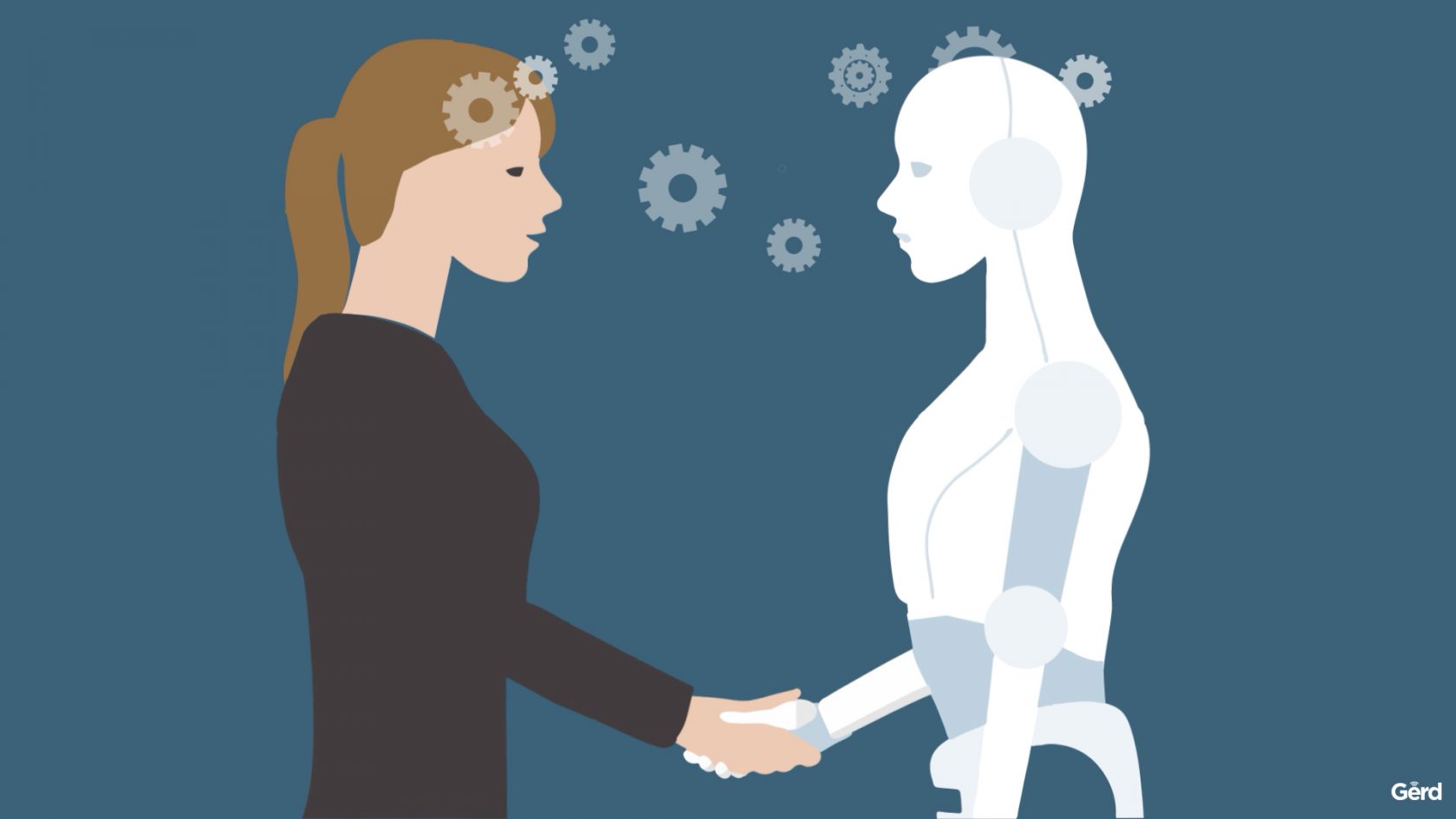THE GREAT REDUCTION (by Futurist Gerd Leonhard)
Post summary: The so-called Metaverse might well be a ‘nirvana' for business, big tech and commerce but it may also be boldest attempt yet to replace actual human relationships and experiences with highly monetizable simulations, reducing complex human life to data feeds, fancy graphics and AI-fuelled convenience: Consensual hallucinations sold as ‘human empowerment'. We should be careful what we wish for – such as to live in an ultra-convenient, amazing new world where we can be anyone and do anything – as we may find that our new virtual dwellings may seemingly allow us to gain a few new riches while endangering our very humanity and leading us away from real happiness.
UPDATED: Watch my brand-new talk on the Metaverse (Gerdtalks #2) below. Have a look at the images used in this talk, via Flickr. Check out my brandnew Metaverse speaking topic, here.
Updated July 28 2022: Related #mustread: Read this great piece on BigThink, on Transhumanism: “Ultimately, all these objections to transhumanism are rooted in a critique of reductionism. Biological systems cannot be reduced to interactions between cells and genes. Cellular systems cannot be reduced to interactions between chemicals. Chemical systems cannot be reduced to interactions between atoms. And quantum mechanics shows us that even atoms cannot be reduced to simple interactions between protons and electrons. But transhumanists seem to believe that this is how the Universe operates, a view that is increasingly out of step with 21st-century science, which is holistic and systems-oriented…”
“The metaverse is a hypothesized iteration of the internet, supporting persistent online 3-D virtual environments through conventional personal computing, as well as virtual and augmented reality headsets” (Wikipedia)
“The metaverse will feel like a hybrid of today’s online social experiences expanded into three dimensions or projected into the physical world” Facebook's Meta Announcement.
“The Metaverse might well be heaven for business, big tech and commerce and ‘hell' for human relationships and society (the MetaPERverse)” Gerd Leonhard
When Covid19 struck in March 2020, my work as a Futurist and Keynote Speaker was changed forever. Instead of traveling to some 100+ events per year, and speaking to / with actual people, I now do what I call ‘Keynote Television‘ i.e. I present virtually, remotely, via video. While I really enjoy this, as well – and I have spend a lot of time perfecting it – I really miss the feeling of being in front of a real-life audience, with all that entails, and all the messiness it can include. One look at the room in front of me tells me everything I need to know to change my story and delivery, and better connect with people. Try that on Zoom:)
After having done some 150 online events in the past 18 months, I have come to the conclusion that doing virtual talks is neither better or worse than doing real-life events – it's just a different beast altogether. It's television, basically, and it opens up an entire new world of possibilities.
Enter Virtual Reality and the so-called Metaverse, takings us way beyond online video calls, Zoom and Skype, into a world where we can gather virtually, without the need to travel (and spew more CO2), without the need for a body and without all of our real-life impediments. Using photo-realistic avatars and augmented reality glasses we can transport ourselves into a world that can be created entirely to our liking, where we can be anything and meet with anyone. A world without limits, a world where we work, live, play, meet and communicate. Kind of a world of ‘artificial humans' (as Samsung boldly calls their new super-realistic avatars, Neon).

On the one hand, being a bit of a geek, I can see the how exciting this could be, and of course as a futurist I know that technologies will keep evolving at exponential pace no matter what anxieties we may have, and yes, every time there has been a major step forward in how humans use technology to see or shape the world, there have been pundits that warned of the ‘end of humanity' as we know it. Point taken. Luddite hat ditched.
On the other hand, I sense that a new era of seriously reductionist ‘innovation' is ahead. Sure, confusing fancy simulations (including deep-fake videos) and clever algorithmic content with real-life is a problem that already manifests itself in social media (such as the Instagram-fuelled fear of not looking as amazing as the other teenage girls that show off their makeup in your feed). Addiction to mobile devices and real-time services (what I have called the rise of the Sofalarity before) is already widespread, as well – but what VR and the Metaverse is capable of will be exponentially more impactful.

I would define reductionism as the concept of depicting something – or rather mirroring or simulating something – that can pass as a useful and entertaining copy of the real thing. It is the effort of creating an acceptable result without having to go through all of the work first, the idea of getting most of the benefits of something without needing to go through the efforts.
Take for example the Venetian Hotel in Las Vegas which strives to make visitors feel as if they were actually in Venice – and if you've never been in Venice Italy, you'd probably be delighted to experience a pretty amazing sim (simulation) of it, and in a much more convenient way. Or take online dating, which caters to the idea that selecting potential partners based on their explicit attributes (such as height, hair, education, income etc) will result in finding strong candidates for a ‘successful' date or subsequent relationship. While online dating is, by and large, deemed to work well for a good many people, those that have tried online dating are probably familiar with what happens all too often when we meet a seemingly perfect online candidate in real-life – within 20 seconds we know how wrong we've been all along:)
Here are the things that bother me most about the Metaverse concept:
- LAZINESS: The idea that we can experience a more convenient and infinitely easier, more effortless reality
- ESCAPISM: The idea that we can escape to a virtual world where we can leave the real world behind and start again
- NIHILISM: The idea that for those with the means, possibilities are infinite – we can just create a new world if the old one is boring us!
- DISEMBODIMENT: The idea that we don't need a body to think and to communicate or to learn; all we need is a head and our brains.
- OBSESSION WITH EFFICIENCY: The idea that convenience, productivity and efficiency matters more than humanity: Let's just do away with all those clumsy human limitations and make everything seamless, easy and convenient in the sparkling new metaverse. And finally, let's upgrade ourselves so we can keep up with the machines!

Of course, reductionism isn't just limited to virtual or augmented reality or the Metaverse (wether Zuck's or MSFT‘s or Nvidia's or…) , it's also evident within many other recent developments, such the so-called exogenesis (babies ‘bred' in artificial wombs – yes, I know, it sounds and looks crazy), the social credit scoring system that is already widely deployed in China (with obvious Black Mirror connotations) and the accelerating race to create better human-like robots.
So will the concept of replacing uniquely human processes, relationships and experiences with AI-powered technological simulations become the biggest business opportunity ever? Will we stop bothering with a complicated, confusing and often exhausting reality when we can live in a perfectly orchestrated and comfortable virtual reality?
I conclude that we must on the one hand start to REFUSE TO PARTICIPATE when technologies (or those purveying them) become overbearing or when alleged progress threatens to dehumanise us (yes, Facebook is a great and real-time example for this), while on the other hand we can't just reject the positive aspects of exponential innovations, either. Our future will very likely not entail a lot of simple yes/no answers (aboard from a few clear NO's such as on AI-fuelled weapons that can kill without human supervision) but will involve many ‘it depends' scenarios that we must learn how to live with, and that we must carefully investigate and regulate.
Some bottom-lines
We think with our bodies (not just our brains)
You will not find happiness on the screen or in the cloud.
Algorithms know the value of everything but the feeling of nothing.
The more we connect with technology the more we must protect what makes us human.
Too much of a good thing can be a very bad thing – this is a key issue with all exponential technologies and therefore with AR/VR and the Metaverse, as well. As my fav sci-fi writter William Gibson likes to say: “Technology is morally neutral – until we use it”. So who will we define what ‘good moral usage' is? This video – a person sleeping while driving in a Tesla – illustrates this point very well: in principle, these technologies are beneficial – but how will we keep people from abusing them, causing real harm to themselves and to society at large?
Related must-reads:
- Read all my recent Metaverse highlights on GerdFeed
- 5*: The metaverse is just the latest incarnation of Las Vegas (via the FT)
- The metaverse: Worse than social media?
- William Gibson once called cyberspace a “consensual hallucination“
- 6 Lessons on the Future of the Metaverse From the Creator of Second Life (TIME)
Related videos and films
